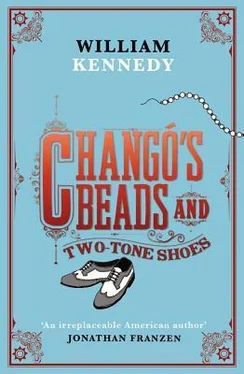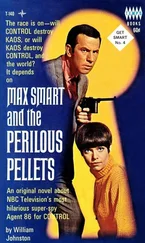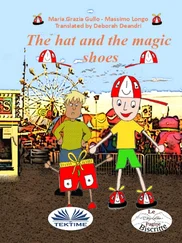It was 1935 and Max was a junior at Yale, immersed in the fusion of economic, political, and cultural history, and coming to New York on weekends for some history making of his own, which is when he discovered Sonny. He, and sometimes Alex, hung out, drank, talked music, watched Sonny hold his own (relatively) with Fats and James P. until one night Sonny wasn’t playing anymore and Max couldn’t find out why. He heard some record company had set up a recording date but Sonny didn’t show. You gotta be dead not to show for a record date. But Sonny wasn’t dead. He wasn’t even Sonny. Years later he told Max he missed his train, but everybody knows you don’t miss trains. He turned up in Albany after his no-show calling himself Cody Mason and with a gig at Big Jimmy’s — two shows Friday and Saturday, singers, unfunny comics, and sexy rumba dancers who would drift in from the rooming house next door; and when Cody played for them after hours he found out they had never used their betweens to pick up tips. So he told them how it was done (one girl could do a split to swoop the money off the floor) and he played their mood music. His income went up but that was only money. Cody played alone on weeknights, played like a wild man, you don’t get that kind of talent in Albany, and you never ever got it before at Big Jimmy’s. Within six weeks the bar was buzzing; in three months Cody was a main man and Jimmy’s was jazz central.
Max rediscovered Cody when he came to Albany with Alex in the summer of 1936, and Alex knew every saloon in The Gut. Sonny! Max! Alex! Whataya know! This was the summer Max met Bing through Alex in Saratoga and they all played serious golf (Alex’s 18 handicap was not serious) at the MacGregor links in the morning, and serious horses in the afternoon at the track. Max warned Bing that he played for Yale’s golf team and could give fellows who shot in the 70s a run. You’re pretty sure of yourself for a young fella, Bing said, and Max said, well, maybe, if you think twenty-one is young, but it’s all in the short game and the long putt. Bing said if I was a betting man I’d put five on the table says you won’t break 80. Max said you’re on and he shot 75 to Bing’s 79. Bing pressed a fiver into his hand but Max said, no, no, I knew I could beat you. Bing also came to know this, losing six more matches that week to Max the wunderkind, who took to advising Bing on his short game.
Then came the long night at Tivoli with Max, Alex, George, Bing, Cody, and “Shine,” a hell of a night. When Danny Quinn grew older he kept saying he was going to write about it. Doosaday sosadah spokety spone. It happened two weeks after Max had been arrested for cheating a horse breeder out of nine thousand on the golf course. Hustling is all it was, but the Saratoga Keystone Kops (who turned a blind eye to mobsters fleecing the summer population at crooked upscale casinos) called it grand theft by a con man. The victim was a Kentucky aristocrat who wouldn’t miss the nine but was furious that a Pontiac dealer’s son had conned him. Max’s hustle was strictly to raise his Yale tuition, for his father’s car dealership tanked in ’35 and the old man died of grief; but after the arrest Max was expelled from Yale and never went back to school. Bing posted his bail, Max gave the nine back to the horseman, and charges were dropped. Max did not let all this interfere with his social life, and in late August he brought Bing down to Big Jim’s to hear Cody play.
George, standing at the bar next to Cody, looked at Max, and he remembered that night at Big Jim’s with Bongo. Bingo. He remembered Cody playing “Shine” that night and he said, “Are you going to play us a tune, Cody?”
“Not now, Georgie, but I got a concert tonight.”
“You don’t say. Concert.”
“Over at the DeWitt.”
“Will there be dancing?”
“Gotta be. Mike Flanagan’s band’s playing with me.”
“It’s a fund-raiser, twenty bucks a pop,” Roy said. “Includes food.”
“Twenty bucks?” George said. “That’s out of my league.”
“Five bucks if you don’t eat dinner,” Roy said.
“That’s good,” said George. “Five bucks for no dinner.”
The bar phone rang and Roy answered and handed it to Max. “The call you been waitin’ for.”
Max took the phone as far from the bar as the cord allowed, and hung up after a few muffled words. “I need a cab,” he said.
Roy picked up the direct taxi line. “Five minutes,” he told Max.
Max put a ten-dollar bill on the bar. “Gotta move, Cody. I’ll try to catch some of the concert.” His tickets were still on the bar. He pushed them toward George.
“See the concert on me, George,” Max said. “Dinner included.”
George picked up the tickets. “These are for me?”
“All yours,” Max said. Then he shook Cody’s hand, the same hand that had stroked Renata’s arm at a Havana nightclub and loosened Max’s scurrilous tongue. Max had done penance for fifteen years, and Cody said forget it half a dozen times, and then finally told Max, “Don’t bring it up again. It’s history. Some of my best friends are racist fuckheads.”
Roy looked across the bar at George. “You got yourself a night on the town Dickey-bird.”
“Dickey-bird,” George said. “Is your name Dick? You look like a friend of mine.”
“Don’t start,” Roy said and he moved down the bar.
George went back to Vivian and put the tickets on the table in front of her. He took off his hat, put it over his heart. “Vivian, may I call you Vivian?”
“You certainly may.”
“Vivian, there’s a concert this evening at the DeWitt, and it would be wonderful if you could join me. They’re serving food and I relish the hope that you’ll have dinner with me.”
“That is so lovely, George. I’d be very happy to join you.”
“The man said there would be dancing.”
“Oh, good. Then we won’t need Beauman’s, will we? When is the concert?” she asked.
George read the ticket. “Seven-thirty is dinner,” he said.
“Then we should be going,” Vivian said.
They stood up and George gestured her toward the door where Cody was talking with Max.
“Thank you for those tickets, sir,” George said to Max.
“Max, George. Call me Max.”
“Max. Thank you. Cody, will you be at the concert?”
“I sure will, George,” Cody said.
“Then I’ll see you there,” and George offered his arm to Vivian and they walked out onto Eagle Street. George stopped outside the bar and looked in both directions, torn. But Vivian stepped out toward the DeWitt Clinton.
“I’d like to go to the bank and cash a check,” George said.
“Banks are all closed now, George,” Vivian said.
“Are they? Then let’s stop at Big Jimmy’s. He’ll cash a check for me any time. He owes me.”
“I’ve got money, George, don’t worry about it. You won’t need money for the dinner, you’ve got the tickets. And I’d like to stop at the house before we go anywhere.”
“The house?”
“My house. It’s just a couple of blocks over, on Columbia Street. We still have time.”
“Columbia Street? I lived on Columbia Street.”
“You did? I thought you lived on Van Woert Street.”
“I lived on Van Woert after my parents died.”
“They died together, didn’t they?”
“I think they did.”
“What happened?”
“It was a big accident.”
“A train wreck?”
“That sounds right. A train wreck.”
“What did your father do?”
“He was in the Civil War. He knew very big people. Grant, Lincoln. And Clover. Adam Blake. Sheridan. He wrote for newspapers. Grover. Wrote a book, in fact. Two books. Commodore Cleveland. Cuba. Maybe three books. I’ll have to look it up.”
Читать дальше












